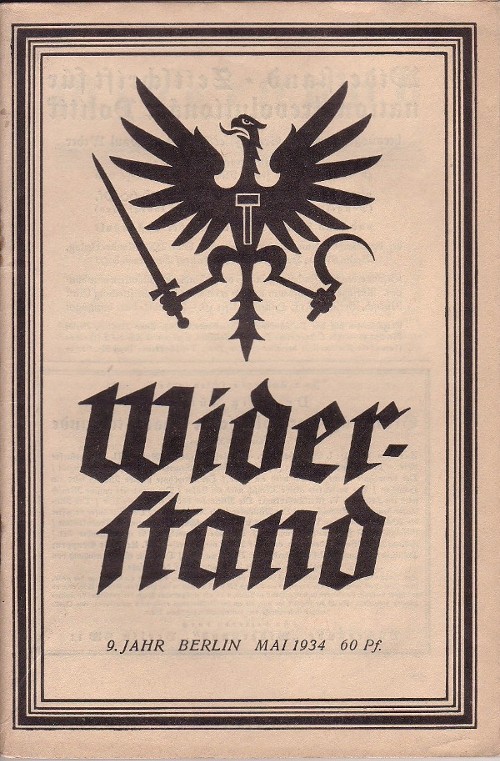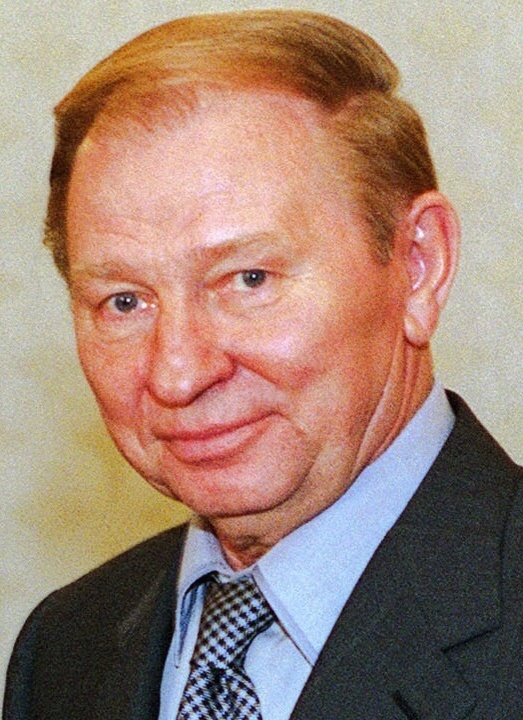|
Progressive Socialist Party Of Ukraine
The Progressive Socialist Party of Ukraine (PSPU) is a banned Pro-Russian National Bolshevik political party in Ukraine led by Nataliya Vitrenko. The party was represented in Ukraine's national parliament between 1998 and 2002. History The party was created by Nataliya Vitrenko, a then dissident member of the Socialist Party of Ukraine (SPU) in April 1996.УКРАЇНА ПАРТІЙНА. ЧАСТИНА V. СОЦІАЛІСТИЧНА ПАРТІЯ УКРАЇНИ ''SOCIALIST PARTY OF UKRAINE'' ZN.UA (7 March 2002) She led a group of more radical SPU members who opposed what they regarded as revisionist tendencies in the Socialist Party. In October 1995 they had left ... [...More Info...] [...Related Items...] OR: [Wikipedia] [Google] [Baidu] |
Nataliya Vitrenko
Nataliya Mykhailivna Vitrenko ( uk, Натáлія Михáйлівна Вітрéнко; born December 28, 1951) is a pro-Russian Ukrainian politician and scientist. Presidential candidacy Born in Kyiv, she was a candidate in the 2004 Ukrainian presidential election, nominated by the Progressive Socialist Party of Ukraine, which she has chaired since 1996. In the 2002 Ukrainian parliamentary election, her party won 3.22% of the votes. She was a presidential candidate in 1999, when she won 11% of the votes to finish in 4th place. In the 2004 elections, however, she finished in fifth place and received less than 5% of the vote. On October 2, 1999, Vitrenko was attacked and wounded following a campaign rally when two unknown assailants threw two hand grenades at a crowd gathered outside one of her campaign events. Natalia Vitrenko was again nominated by the Progressive Socialist Party of Ukraine as candidate for the 2010 Ukrainian presidential election [...More Info...] [...Related Items...] OR: [Wikipedia] [Google] [Baidu] |
National Bolshevik
National Bolshevism (russian: национал-большевизм, natsional-bol'shevizm, german: Nationalbolschewismus), whose supporters are known as National Bolsheviks (russian: национал-большевики, natsional-bol'sheviki) or Nazbols (russian: нацболы, natsboly), is a syncretic neo-fascist political movement from conservative revolutionary origins that combines ultranationalism and Bolshevism. Notable historical proponents of National Bolshevism in Germany included Ernst Niekisch (1889–1967), Heinrich Laufenberg (1872–1932), and Karl Otto Paetel (1906–1975). In Russia, Nikolay Ustryalov (1890–1937) and his followers, the Smenovekhovtsy, used the term. Notable modern advocates of the movement include Aleksandr Dugin and Eduard Limonov, the leader of the unregistered and banned National Bolshevik Party (NBP) in the Russian Federation. History and origins In Germany National Bolshevism as a term was first used to describe a current in t ... [...More Info...] [...Related Items...] OR: [Wikipedia] [Google] [Baidu] |
Physica-Verlag Heidelberg
Springer Science+Business Media, commonly known as Springer, is a German multinational publishing company of books, e-books and peer-reviewed journals in science, humanities, technical and medical (STM) publishing. Originally founded in 1842 in Berlin, it expanded internationally in the 1960s, and through mergers in the 1990s and a sale to venture capitalists it fused with Wolters Kluwer and eventually became part of Springer Nature in 2015. Springer has major offices in Berlin, Heidelberg, Dordrecht, and New York City. History Julius Springer founded Springer-Verlag in Berlin in 1842 and his son Ferdinand Springer grew it from a small firm of 4 employees into Germany's then second largest academic publisher with 65 staff in 1872.Chronology ". Springer Science+Business Media. In 1964, Springer expanded its business internationally, o ... [...More Info...] [...Related Items...] OR: [Wikipedia] [Google] [Baidu] |
United Ukraine
United Ukraine ( uk, Єдина Україна) was a political party in Ukraine. History The party was founded in 1998 as Party of Educators of Ukraine ( uk, Партія Освітян України); it was officially registered as a party on 26 October 1998. At the legislative 2002 elections the party was part of the ''Nataliya Vitrenko Bloc'' with Progressive Socialist Party of Ukraine.Партія "Єдина Україна" Databases ASD The alliance won 3.22% Databases ASD of the votes, little short of passing the 4% threshold needed to enter the |
2002 Ukrainian Parliamentary Election
Parliamentary elections were held in Ukraine on 31 March 2002. Nohlen, D & Stöver, P (2010) ''Elections in Europe: A data handbook'', p1976 The Our Ukraine bloc emerged as the largest faction in the Verkhovna Rada, winning 111 of the 447 seats. The Organization for Security and Co-operation in Europe noted at the time that there were physical assaults and harassment of candidates and campaign workers associated with opposition political parties prior to the March election.Ukraine:Treatment of the Social Democratic Party of Ukraine (SDPU); relationship with the National Salvation Forum (FNB); treatment of FNB members |
Flag Of Nataliya Vitrenko Bloc
A flag is a piece of fabric (most often rectangular or quadrilateral) with a distinctive design and colours. It is used as a symbol, a signalling device, or for decoration. The term ''flag'' is also used to refer to the graphic design employed, and flags have evolved into a general tool for rudimentary signalling and identification, especially in environments where communication is challenging (such as the maritime environment, where semaphore is used). Many flags fall into groups of similar designs called flag families. The study of flags is known as "vexillology" from the Latin , meaning "flag" or "banner". National flags are patriotic symbols with widely varied interpretations that often include strong military associations because of their original and ongoing use for that purpose. Flags are also used in messaging, advertising, or for decorative purposes. Some military units are called "flags" after their use of flags. A ''flag'' (Arabic: ) is equivalent to a brigade in ... [...More Info...] [...Related Items...] OR: [Wikipedia] [Google] [Baidu] |
Central European University Press
Central is an adjective usually referring to being in the center (other), center of some place or (mathematical) object. Central may also refer to: Directions and generalised locations * Central Africa, a region in the centre of Africa continent, also known as Middle Africa * Central America, a region in the centre of America continent * Central Asia, a region in the centre of Eurasian continent * Central Australia, a region of the Australian continent * Central Belt, an area in the centre of Scotland * Central Europe, a region of the European continent * Central London, the centre of London * Central Region (other) * Central United States, a region of the United States of America Specific locations Countries * Central African Republic, a country in Africa States and provinces * Blue Nile (state) or Central, a state in Sudan * Central Department, Paraguay * Central Province (Kenya) * Central Province (Papua New Guinea) * Central Province (Solomon Islands) * C ... [...More Info...] [...Related Items...] OR: [Wikipedia] [Google] [Baidu] |
1999 Ukrainian Presidential Election
Presidential elections were held in Ukraine on 31 October 1999, with a second round on 14 November. Nohlen, D & Stöver, P (2010) ''Elections in Europe: A data handbook'', p. 1976. The result was a victory for Leonid Kuchma, who defeated Petro Symonenko in the run-off. Electoral system At the time of election the population in Ukraine was 50,105,600 with 34,017,400 living in cities. The most districts contained the Donetsk Oblast (23) as the most populous one, the least electoral districts among oblasts were in the Chernivtsi Oblast, only 4. The city of Kyiv had 12 electoral districts and Sevastopol - 2. There also was a special ''out-of-country district'' available for voters who at the moment of elections were not available to vote in Ukraine. Registration There were 32 individuals who submitted their documents for registration as pretenders on candidate to the President of Ukraine. Out of them 19 pretenders were registered with the Central Election Commission of Ukraine to ... [...More Info...] [...Related Items...] OR: [Wikipedia] [Google] [Baidu] |
Paul D'Anieri
Paul J. D'Anieri is Professor of Public Policy and Political Science and former Executive Vice Chancellor & Provost of University of California, Riverside. Prior to his position at the UCR, Dr. D'Anieri served as the dean of the University of Florida College of Liberal Arts and Sciences (CLAS), from July 2008-June 2014 and the associate dean for humanities from 2004 to 2008 and associate dean for international programs from 1999 to 2003 at the University of Kansas. D’Anieri is a political scientist specializing politics and international relations in the former Soviet Union, focusing on Ukraine and Russia. He is also considered and expert on economics, finance, and budgeting in US universities, which became a focus during his administrative career. D’Anieri received his bachelor's degree from Michigan State University in International Relations in 1986. He then went on to earn a master's degree and doctorate in government from Cornell University in 1991. Academic career D’ ... [...More Info...] [...Related Items...] OR: [Wikipedia] [Google] [Baidu] |
1998 Ukrainian Parliamentary Election
Parliamentary elections were held in Ukraine on 29 March 1998. Nohlen, D & Stöver, P (2010) ''Elections in Europe: A data handbook'', p1976 The Communist Party of Ukraine remained the largest party in the Verkhovna Rada, winning 121 of the 445 seats. After the election votes in five electoral districts had too many irregularities to declare a winner and the parliament was five members short of 450. Electoral system In comparison to the first parliamentary election, this time half of 450 parliament seats were filled by single-seat majority winners in 225 electoral regions (constituencies), and the other half were split among political parties and blocksAgainst All Odds: Aiding Political Parties in Georgia and Ukraine (UvA Proefschriften)< ... [...More Info...] [...Related Items...] OR: [Wikipedia] [Google] [Baidu] |
NATO
The North Atlantic Treaty Organization (NATO, ; french: Organisation du traité de l'Atlantique nord, ), also called the North Atlantic Alliance, is an intergovernmental military alliance between 30 member states – 28 European and two North American. Established in the aftermath of World War II, the organization implemented the North Atlantic Treaty, signed in Washington, D.C., on 4 April 1949. NATO is a collective security system: its independent member states agree to defend each other against attacks by third parties. During the Cold War, NATO operated as a check on the perceived threat posed by the Soviet Union. The alliance remained in place after the dissolution of the Soviet Union and has been involved in military operations in the Balkans, the Middle East, South Asia, and Africa. The organization's motto is ''animus in consulendo liber'' (Latin for "a mind unfettered in deliberation"). NATO's main headquarters are located in Brussels, Belgium, while NATO ... [...More Info...] [...Related Items...] OR: [Wikipedia] [Google] [Baidu] |
European Union
The European Union (EU) is a supranational political and economic union of member states that are located primarily in Europe. The union has a total area of and an estimated total population of about 447million. The EU has often been described as a '' sui generis'' political entity (without precedent or comparison) combining the characteristics of both a federation and a confederation. Containing 5.8per cent of the world population in 2020, the EU generated a nominal gross domestic product (GDP) of around trillion in 2021, constituting approximately 18per cent of global nominal GDP. Additionally, all EU states but Bulgaria have a very high Human Development Index according to the United Nations Development Programme. Its cornerstone, the Customs Union, paved the way to establishing an internal single market based on standardised legal framework and legislation that applies in all member states in those matters, and only those matters, where the states have agreed to act ... [...More Info...] [...Related Items...] OR: [Wikipedia] [Google] [Baidu] |




.jpg)